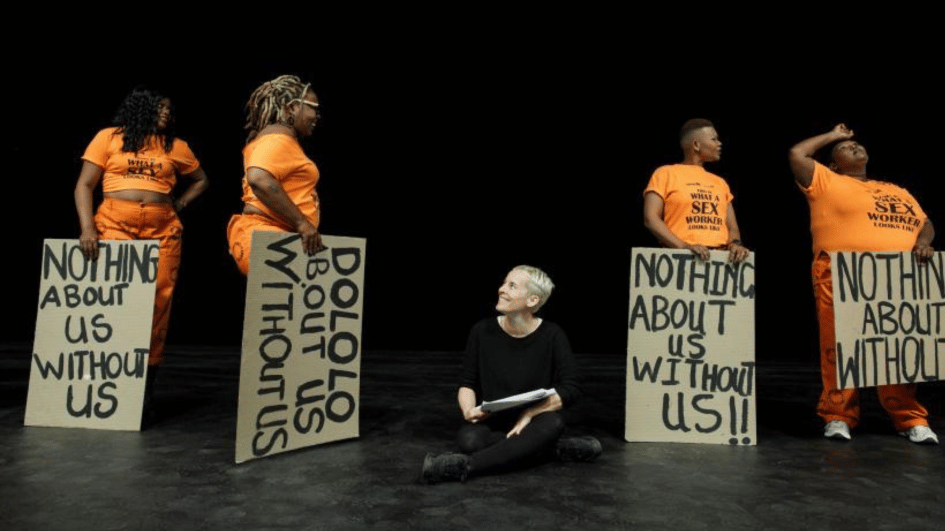
Artist Candice Breitz worked for several years to set up an exhibition in the German city of Saarbruecken, only for it to be cancelled over her stance on the Israel-Hamas war.
In Germany, where politicians have voiced steadfast backing for Israel following Hamas' devastating attack in October, a wave of cultural events and prize ceremonies have been axed after participants expressed views considered too anti-Israel.
The trend has fueled fears that artistic freedoms are being eroded, even as organizers defend their decisions as necessary to push back against any signs of anti-Semitism, which has spiked in Germany since the start of the conflict in Gaza.
The upshot of this, believes Breitz, who is herself Jewish, is that "German institutions are likely to increasingly avoid working with artists who are politically engaged."
While other countries have seen event cancellations in similar circumstances, the trend in Germany has been particularly pronounced.
Breitz's installation, which is called TLDR, and has already been exhibited widely, was due to be shown at the Saarlandmuseum next year before organizers announced last month it was being axed.
The Saarland Cultural Heritage Foundation said it would "not provide a platform for artists who do not recognize Hamas's terror as a 'rupture in civilization,' or who consciously or unconsciously blur the boundaries between legitimate and illegitimate actions."
Breitz however insisted she has publicly condemned both Hamas's attack, and Israel's "disproportionate" response, on multiple occasions.
"I do not question Israel's right to defend itself against terrorism, but nevertheless believe that the collective punishment of Gazan civilians cannot be the answer," said the 51-year-old.
Another prominent figure to be affected is Russian-American writer and journalist Masha Gessen, who is Jewish and lost family members in the Holocaust.
Gessen, who uses the pronoun they, had been due to receive a prestigious German prize, the Hannah Arendt Award for Political Thought, last week. But a foundation backing the prize withdrew from the ceremony after Gessen wrote an essay in The New Yorker in which they compared the Gaza Strip to Jewish ghettos in Nazi-occupied Europe.
The organizers pushed ahead however, and the prize was awarded a day later.
In another case, a major literary prize due to be awarded to Berlin-based, British writer Sharon Dodua Otoo did not go ahead over a petition she had signed eight years ago that critics said supported a movement to boycott Israel.